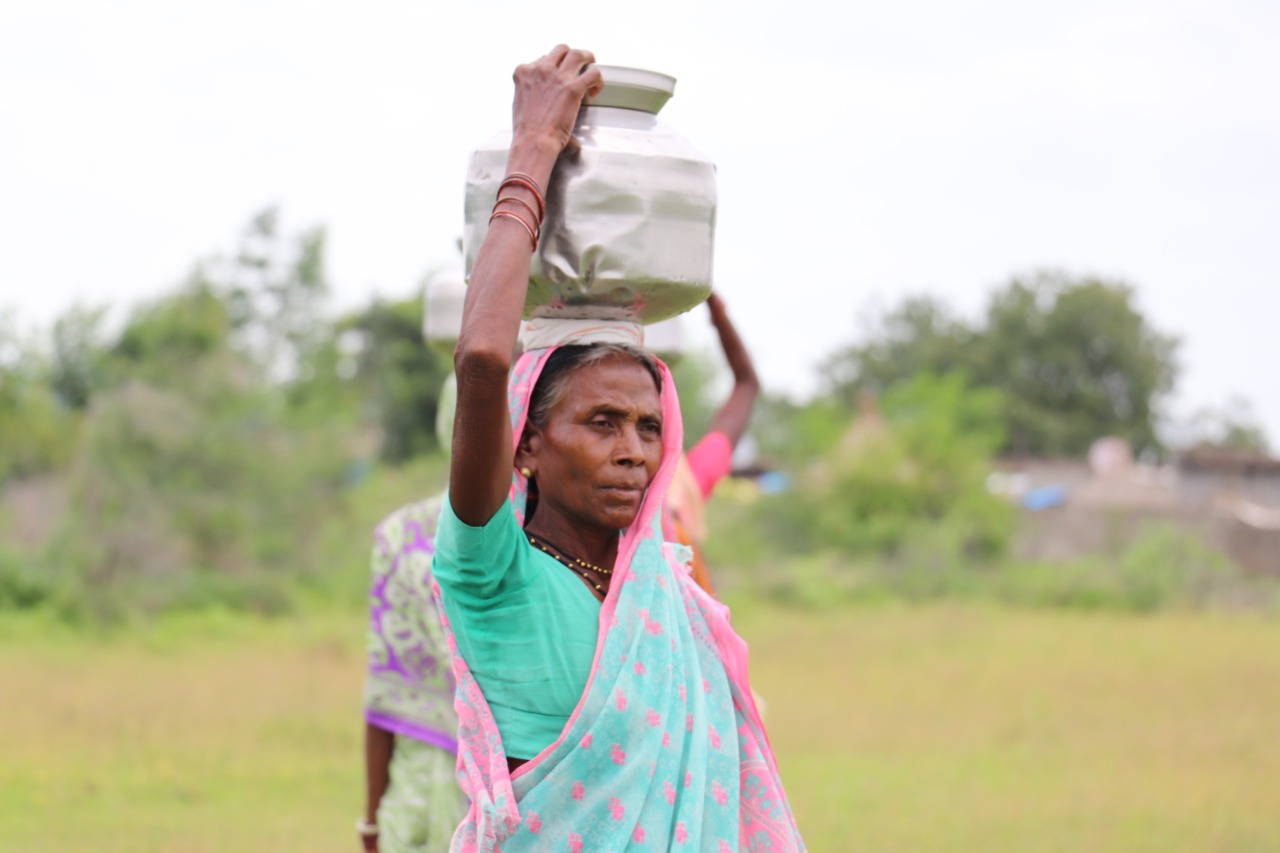- home

- Publication & Resources

- Blog
- HOPE IN TIMES OF DESPAIR
HOPE IN TIMES OF DESPAIR
Suraj Ramji is a 25-year-old migrant worker hailing from Awaliya village in Madhya Pradesh. He belongs to the Korku tribe, which is an ethnic adivasi group residing in parts of Madhya Pradesh and Maharashtra. A lesser known tribe, the Korkus are known to follow a traditional form of living with thatched huts made up of sand, stone and leaves encircling the village. There are more than 188 households residing in the Awaliya village. They lack proper road connectivity and communication channels.
There is a lack of awareness about proper health and hygiene practices, which lead to emergence of diseases and malnutrition. Agriculture is the major source of livelihood here. But the scanty rainfall and barren landscape means that arable land is scarce, prompting people like Suraj, to turn to other means for survival.
The absence of his own land for cultivation and the paucity of employment opportunities within his village, made him migrate to sustain his family of three.
Hoping to find some work, Suraj alongside his friends migrated to Jalgaon in Maharashtra, in February 2020. Maharashtra houses around nine million of the country’s migrants, the highest number among other states. However, the lockdown announced due to the COVID-19 pandemic made matters worse.
While the pandemic has impacted various strata of society, it is the 40 million internal migrant population across the country, that has been adversely affected, according to the World Bank.
With all employment opportunities shutting down resulting in no work, Suraj thought it was better to return home.”We waited for a few days, hoping for some transport (train or bus) to take us back. Seeing none, we decided to walk back home.” But home was nearly 300km away. Embarking on an arduous journey that went on for six days, they were able to cover the distance.
Things weren’t better at home too. Suraj returned to find that food was scarce and even basic essential commodities were unavailable in his remotely located village.
The ration that he got from the PDS shop wasn’t enough to sustain him and his family for long. This is where CASA came to his rescue. After identifying his needs during a survey, he was provided with dry ration and hygiene kits, under CASA’s COVID-19 Response Programme. “These many things will help feed my family for a minimum of one and a half months,” said a delighted Suraj, who thanked CASA for the support.
-written by Sudarshana Chatterjee, Intern, Communications
 Previous Blog Post Hope beyond the Clouds
Previous Blog Post Hope beyond the Clouds Cyclone Amphan: Recounting tales of Horror
Cyclone Amphan: Recounting tales of HorrorFeatured Post

International Women’s Day -2021
8 Mar 2021
International Women’s Day -2021 is very special for CASA. It’s a delight to announce, CASA with the support of the Church of Sweden has launched an exclusive Gender Desk to emphasise the importance of Gender Justice work. CASA has been working for Gender Justice all throughout and across our constituencies in all these years. Gender Desk comes to add vigour […]

Overcoming Gender and Poverty Barriers
Poverty has been an inevitable problem in India since the beginning of time. The increasing problems of poverty caused by overpopulation and the unequal distribution of wealth among the people have led to a huge impact on the life of millions in the rural as well as the urban area. A person has to acquire […]

Impact of Climate Change on Women
16 Jan 2021
Climate change is a prevailing problem globally whose hazardous repercussions extend beyond the environment. Shrinking glaciers, extinction of plants and animal species, mutation, rise in the Earth’s average temperature and triggered seasonal fluctuations, are some of the impacts of climate change that have already grabbed the headline. Certain early predictions pertaining to climate changes had […]



